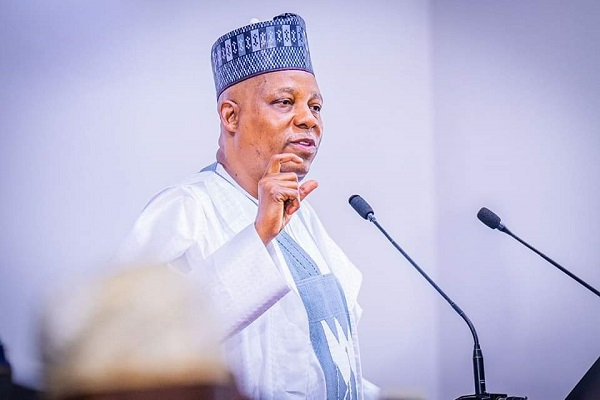Vice President Kashim Shettima has stressed the need for private sector collaboration in tackling the problem of Internally Displaced Persons(IDPs), saying the Sub-Saharan region of Africa is right at the epicentre of the conundrum.
He spoke in Lagos at the United Nations High Commission for Refugees (UNHRC) 2024 Africa Roundtable on Private Sector Solutions to Internal Displacement, titled ‘Bridging Futures: Converging for Solutions’.
Vice-President Shettima, represented by the Special Adviser to the President on Economic Affairs, Dr Tope Fasua, said, “This is unacceptable, as 35 million women, men, girls and boys have been forced, and men as well, have been forced to place their lives at risk due to conflicts, violence, human rights abuses, climate change and other crises and solutions are becoming harder to come by way of conflicts spanning decades instead of weeks or months.
“This is one critical step in your great sacrifice to humanity. Our common goal in the next few days is to find ways to support the private sector in engaging actively with internally displaced persons and to help find solutions to their plight in the coming years.
He alluded to the fact that it has become evident over the years that governments alone cannot handle the deluge, astuteness, dynamism, and, of course, human capital, but collaboration with the private sector will be a game changer to combat the IDP crisis faced by the nation.
Hence, he remarked that the forum would proffer innovative conflict management, displacement, and prevention solutions.
The African private sector is tasked with charting the path to sustainability through corporate social responsibilities and enabling a thriving, inclusive business environment for IDPs on the continent.
Speaking at the event, UN Assistant Secretary-General Robert Piper remarked that the conference was focused on solutions.
Mohammed Malick Fall, United Nations Resident Coordinator for Nigeria, reiterated that displacement has exacerbated poverty and inequality, putting mass pressure on most communities and hindering progress towards a sustainable development goal.





